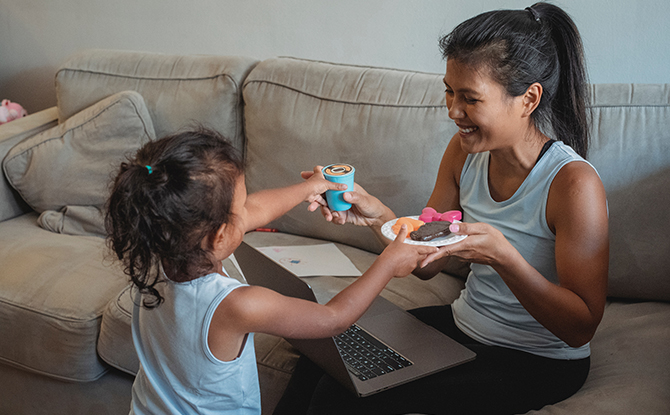
One aspect of parenting that you’ll have to deal with as your child gets older is pocket money. Choosing when and how much to start giving to your child may require some thought.
Giving money to children can occasionally seem like a big choice, but it can also be an opportunity to impart important life lessons and advance their financial literacy. Let’s look at some money-saving tips that parents should be aware of and put to use when it comes to pocket money.
Tips on Pocket Money for Parents
Start as Young as Possible
Parents can begin educating their kids about money from an early age. Educate them on the importance of saving, spending, and giving money in simple categories. Not only will they be able to set money aside each time they receive it, but they will also learn budgeting skills that they can use as adults.
So that they can practice and learn sound saving habits, ask them to set goals for saving money for the things they want. Pocket money is a fantastic way to help them understand what money is and how to use it once they have a basic understanding of what it is.
Set some Rules
One piece of the pocket money advice that parents should take heed of is to set rules so that kids will understand what they should buy with their money.
There’s no need to ask them to save it all, but you shouldn’t let them spend it all on candy either.
In order for them to comprehend the idea of managing finances, it is crucial to emphasize the value of setting limits regarding the use of their pocket money.
Don’t Give Too Much
It’s crucial to make sure you start out small and give your kids a manageable amount to learn how to handle first.
Depending on their age and the cost of living, there are wide variations in the amount of pocket money.
For some parents, they will tie their kids’ allowance to the amount of daily chores they complete; in exchange, the kids also receive an annual raise. This is one strategy of teaching them about the value of money, but at the same time, you need to consider if this is actually sending the right message across, or whether they should just simply help out with household chores because they are part of the family.
Be Fair to Children
You get to choose whether your kids get exact amounts or varying amounts over time. But it’s crucial to make your choice with objectivity.
However, it’s crucial that your kids comprehend that they don’t receive different amounts out of favoritism.
This would also a good time to emphasize that money is a limited resource that should be used carefully. Being realistic with them is crucial because, although some of their peers may receive larger allowances, not all of them come from similar backgrounds.
Incentivize Savings
It’s always difficult for children to save huge amounts of money since they do not actually earn an income. They might feel discouraged and far away from their savings goals as a result of this.
For instance, it will take some time for your child to reach their goal if they are saving $4 to buy something that costs $50.
As parents, you can decide whether and how to reward and encourage your children as they develop healthy habits. If they have been developing sound financial practices, this may enable them to top up the balance and buy the item they want.
Consistency is Key
One of the parents’ pocket money tips they should know about is to establish consistency, but many don’t do this. Give your child pocket money on a regular basis — every day, every week, or every month — and help them learn how to manage it.
This will facilitate the development of habits. Give them the idea that if the money runs out quickly, they will need to learn how to manage and budget it in order to get by until their next allowance.
Some parents make the error of forgetting to give their kids pocket money on time, and as a result, after about a month, they end up giving them a lump sum.
If this happens, children won’t be able to regularly practice managing their money or develop sound financial practices as a result. Set a reminder in advance to help you give your kids their pocket money on time.
Don’t take Pocket Money Back
Some strict parents believe that taking a child’s pocket money back from them because of poor behaviour will fix issues, but it doesn’t. Instead, it does more harm than good.
The reason is that if the child realises that they will have to return it, the first thing they’ll do is to spend it.
Instead of taking it back, you should place a cut on their allowance until the end of the punishment. Remember to have a clear conversation with your child so that they understand the reasons behind the decision.
Help your children understand the basics
A pocket money tip is to teach them the distinction between assets and liabilities. Explain to them that assets add funds to your account while liabilities deduct them. They will be able to understand the fundamentals of finance and develop an understanding of the value of money as well as how to manage their finances responsibly.
Teach Your Children Pocket Money Habits
The pocket money advice listed above can assist you in helping your kids develop a solid understanding of money and good money management skills.
You can use pocket money as a tool to help your kids learn about budgeting and the value of money. In order for your kids to develop, it is crucial that you as a parent acknowledge and support their financial aspirations as they grow up.



















